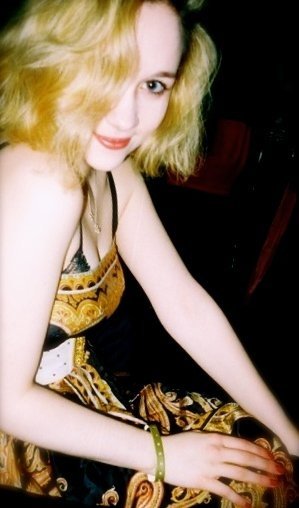Christiana Spens is the author of the The Wrecking Ball and The Socialite Manifesto, published by Beautiful Books. Her works recall the prose of Bret Easton Ellis and Joan Didion, and she is often spoken of as part of a new generation of British writers known as ‘The Dark Young People’, whose ranks include Chris Killen, Joe Stretch and Gavin James Bower.
So what’s your favorite book?
Well, one of them is The Picture of Dorian Gray by Oscar Wilde.
And when did you first encounter Dorian . . .?
I think a boy at school mentioned it to me first. It was one of those books that 16-year-olds read, along with Nietzsche and Salinger and Hemingway, when they are just beginning to articulate their conflicting desires, double lives and fluctuating personal identity. I went to school in St. Andrews, Scotland, so in class we read a lot of Burns and Stevenson, but that whole romantic Jekyll and Hyde sensibility always loomed in the background nonetheless. So when I picked up Dorian Gray on recommendation of one such tormented Scot, I read it against that literary background.
What did you think of it at first?
I could immediately draw parallels between Dorian Gray and Jekyll and Hyde, and was enthralled by a character living such a double life. Although others had said that they found Wilde too florid and indulgent, I found his writing brilliant and sharp and fine. I didn’t struggle and I didn’t let go — I was quite instantly seduced by the beauty of the prose. Perhaps reading it at 16 made the story especially compelling: adolescence is naturally concerned with acquainting oneself with personal demons and living a double life in some sense — being a child and an adult. Reading Dorian Gray put all that angst on ice and poured the gin in — and suddenly the adolescent experience became something enjoyable. Wilde exposed the dichotomous nature of Victorian society to be corrupt, hypocritical and manic — but in the most entertaining and sympathetic manner. He shows up the ridiculousness of cutting oneself in half for the sake of keeping up appearances. And in so doing, he encourages and performs a brutal honesty, which is brave and exciting.
Your own work deals with characters that are obsessed with the aesthetic life — how much of an influence has it had on you?
I wrote my first novel, The Wrecking Ball, a couple years after first reading The Picture of Dorian Gray, and although I was not directly thinking about Dorian when I wrote it, I’m sure it had some influence on me. Firstly, I was determined to portray characters in all their corruption and vanity. I didn’t make them as sympathetic as they might have been, so clearly I still have a lot to learn from Mr. Wilde! The characters I wrote about were vapid and silly and ridiculous, and intent on self-destruction. I suppose I was just trying to write what I saw in London at that time. And by writing from the point of view of four main characters, I tried to show the universality of certain sensations and anxieties, and the ebb and flow of lies and such. They were characters obsessed with the aesthetic life to such an extent that they were entirely superficial, and entirely delusional. They had picked the perfect facade at expense of inner turmoil, definitely. It is hard to write about characters like that and make them attractive at the same time however — and that’s where Wilde is so brilliant. Throughout Dorian Gray, I cared for its central villain — I even loved him. Perhaps without quite realising it, I wanted to be him a little bit as well.
Do you think Wilde was warning people against this type of lifestyle or glorifying it?
I’m sure that Wilde himself had conflicting attitudes to his own subject matter. He couldn’t have written such a great character if he didn’t have some attachment to the decadence and glorified decay he stood for; but then he wouldn’t have been able to write such an accomplished novel if he had been as selfish and intoxicated as Dorian Gray. I think that some writers exorcise their demons by putting them neatly in prose, and perhaps Wilde was one of them.
Having said that — writing fiction is merely a glorified kind of lying, for all its truth-telling. The writer lives a double life if he or she spends half his days playing other characters, living misadventures in prose. So in that sense, Dorian Gray is a great metaphor for the literary life.
Why do you think this book has such an enduring appeal?
In a wider context, Wilde’s novel has enduring appeal because it is honest, and seductive, and beautiful — it is all those things we desire. But it is a vice without a hangover, without therapy bills at the end of it — only an addiction to fiction at the very worst. It is brutal and beautiful, but strangely gentle, too. It is a love affair — perhaps an adolescent one at that — that places human desires in all their glory and their nudity between a couple of hundred sheets.


